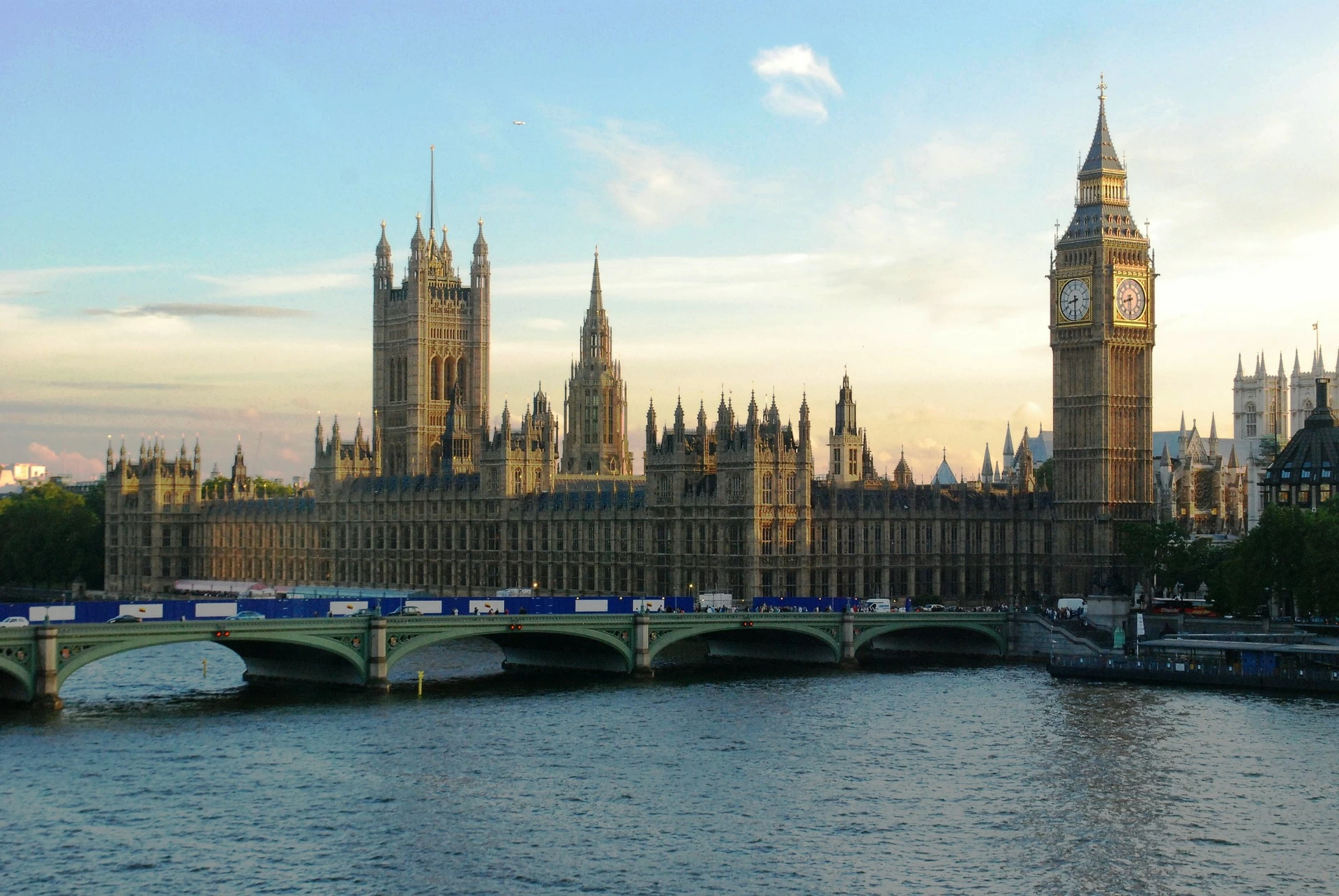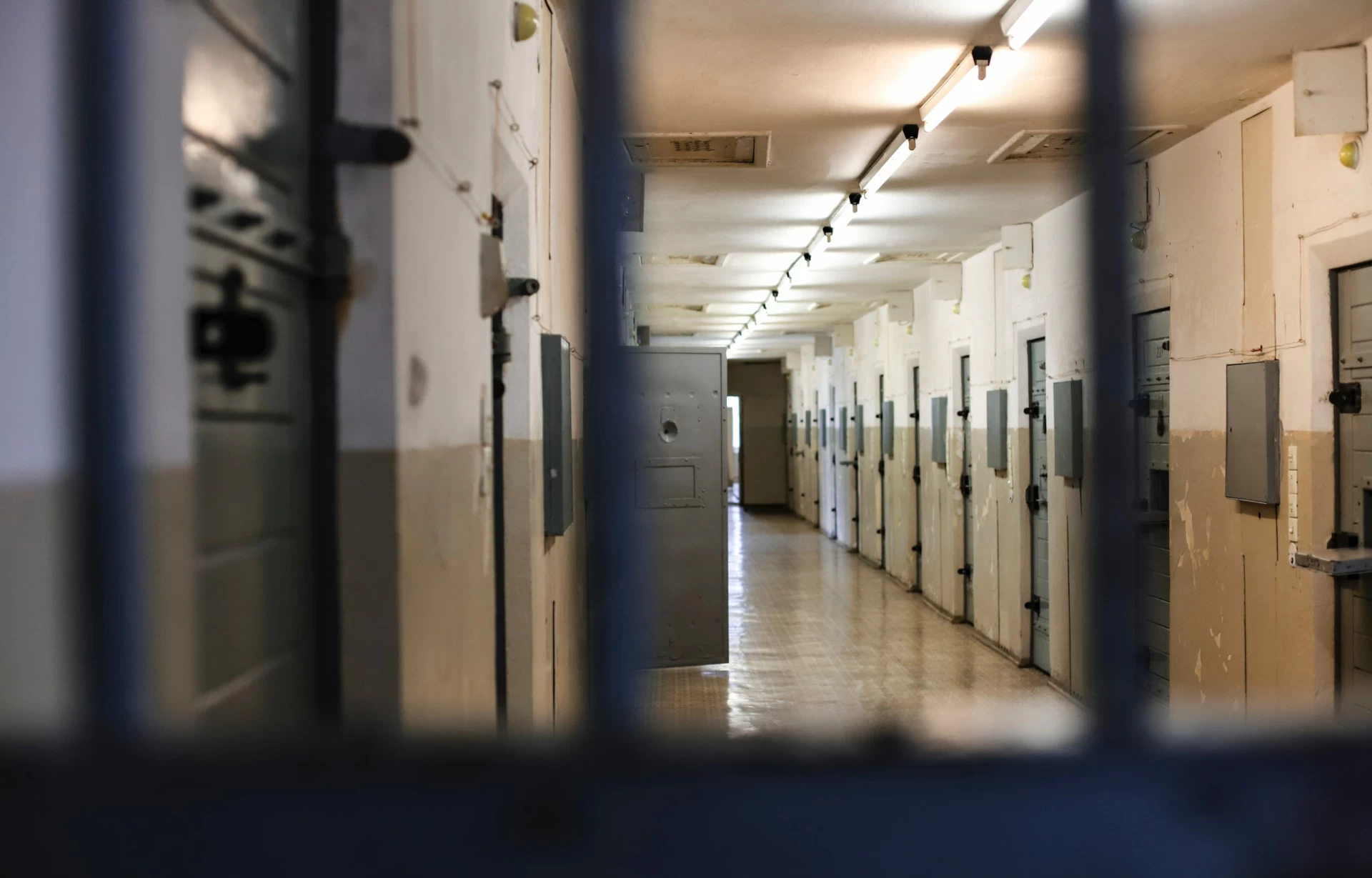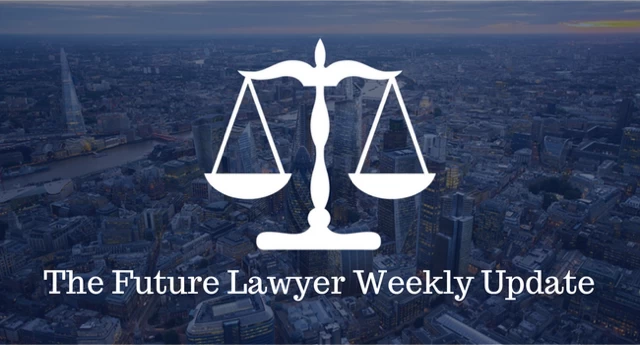
Clear the Lobby: What laws are MPs voting on this week (w/c 6th January)?
January 6, 2020
Privatisation of Probation Services
January 7, 2020The round-up of the stories that a budding Student Lawyer should be aware of this week. Sign up here to get these updates in your inbox every week.
Employment law
Tribunal to decide whether Veganism is a philosophical belief
Reported by Ellena Mottram
A landmark hearing began on the 2nd January 2020 to determine whether veganism can be classed as a philosophical belief and is, therefore, a protected class under the Equality Act.
Jordi Casamitjana was sacked by the League Against Cruel Sports following his decision to raise concerns its pensions funds were being invested in companies involving animal testing. After discovering the investments were being made, he brought attention to his bosses and when they did nothing, he informed his colleagues and was subsequently sacked.
Mr Casamitjina argues he was unfairly disciplined as a result of this disclosure and it was a result of his veganism, arguing he was discriminating against on this basis. The League Against Cruel Sports, an animal welfare charity, however, argue he was dismissed for gross misconduct. They do not, however, contest the argument that veganism should be a protected category.
Mr Casamitjina identifies as an ethical vegan. Like dietary vegans, ethical vegans eat a plant-based diet. However, they go further and attempt to exclude all forms of animal exploitation for example they may not make purchases from companies that carry out animal testing.
If veganism is found to be a philosophical belief it will be one of the protected characteristics covered by the Equality Act 2010 it would be unlawful for an employer to discriminate directly by treating an employee less favorable on the grounds of their vegan belief. In order for veganism to qualify as a philosophical belief, veganism must:
- Be genuinely held
- Be a belief as to a weighty and substantial aspect of human life and behavior
- Attain a certain level of cogency, seriousness, cohesion and importance
- Be worthy of respect in a democratic society, not be incompatible with human dignity and not conflict with the fundamental rights of others.
- Be a belief, not an opinion or viewpoint based on the present state of information available.
Were veganism found to be a protected class it would protect vegans from discrimination in employment, education and the provision of goods and services. Mr Casamitijina has argued this was one of his motivations for bringing his claim, specifically to establishing ethical veganism as a philosophical belief.
The League Against Cruel Sports has not provided a comment on the matter apart from highlighting they do not contest that veganism should be a protected status.
You can find more here or here.
Case Law
Trump’s impeachment trial: oversee by “an absolute disaster” according to the President of the USA.
Reported by Emma Ducroix
Now Trump faces an impeachment trial in the US Senate in which his political fate could rest in the hands of the presiding judge: Roberts.
Running for president four years ago, Donald Trump called John Roberts, the chief justice of the US supreme court, “an absolute disaster” and “a nightmare for conservatives”.
The chief justice’s role in impeachment is broadly described in the constitution. But there are few guidelines and little precedent indicating what duties, precisely, the chief justice can or might discharge.
A survey of Roberts’ time leading the supreme court, his recent public statements and his biography would seem to discourage any expectation Roberts will be an activist presence in the impeachment trial, while leaving open the possibility for a significant and unexpected break with the Republican strategy.
“I think a lot of this is going to depend on the role that the chief justice decides to play,” said Hilary Hurd, a JD candidate at Harvard Law who has written about past impeachment trials. “We don’t know whether there’s going to be a tie on any particular motion. There could be, and we know from precedent that the chief justice is empowered to break a tie.”
His judicial record reveals Roberts to be a reliable conservative with an independent streak. Trump trashed Roberts as a “nightmare” for the chief justice’s siding with the court’s liberal wing in 2012 to uphold Barack Obama’s healthcare law. Roberts further angered conservatives with a ruling last summer that stymied a Trump administration attempt to include a question about citizenship on the US Census.
But Roberts, 64, a George W Bush appointee, is a lifelong Republican with fingerprints on a string of important and divisive rulings, from a 2019 ruling that ducked partisan gerrymandering to a 2013 decision that struck down a key portion of the Voting Rights Act to a 2010 ruling blamed for opening the floodgates of dark money into politics to a 2008 ruling that enshrined an individual right to own guns.
In his 15-year tenure atop the high court, Roberts has fought against the growing public perception, hastened recklessly by Trump, that the judiciary has succumbed to politics.
“We do not have Obama judges or Trump judges, Bush judges or Clinton judges,” Roberts said in a statement. “What we have is an extraordinary group of dedicated judges doing their level best to do equal right to those appearing before them.”
“But we should also remember that justice is not inevitable,” Roberts wrote. “We should reflect on our duty to judge without fear or favor, deciding each matter with humility, integrity, and dispatch. As the New Year begins, and we turn to the tasks before us, we should each resolve to do our best to maintain the public’s trust that we are faithfully discharging our solemn obligation to equal justice under law.”
In addition to Rehnquist, he clerked for the legendary appeals court judge Henry J Friendly, and then he served in the White House counsel’s office under Ronald Reagan. Roberts worked as a corporate lawyer before entering the George HW Bush administration as deputy solicitor general, arguing dozens of cases before the supreme court. He was first nominated to the federal bench in 1992, but his nomination languished in a Democratic-led Senate. He was ultimately appointed in 2001 and confirmed as chief justice in 2005.
Roberts wrote then that “any judicial decision on what is ‘fair’ in this context would be an ‘unmoored determination’ of the sort characteristic of a political question beyond the competence of the federal courts.”
Justice Elena Kagan blasted him for the non-decision. “Of all times to abandon the court’s duty to declare the law,” she wrote in her dissent, “this was not the one.”
Find out more here.
Law
Background to Gillick competence: Can children consent to gender reassignment? High Court to give a ruling on this issue
Reported by Laurence Tsai
The basic rule is that medical professionals may not treat someone without consent as this would give rise to criminal and tortious liability. The landmark case of Gillick v North Westfolk established that children under the age of 16 could only consent to treatment if they are considered competent. The test (“Gillick competence”) requires that a minor must be able to consent to treatment if they demonstrate “sufficient understanding and intelligence to fully understand what is proposed”. The House of Lords also ruled medical professionals may provide treatment that they believe to be in the child’s best interests with that child’s consent.
To ensure that medical professionals facilitate informed consent, they must take reasonable steps to ensure the patent is aware of any material risks involved in any recommended treatment. In the gender dysphoria context, this would involve providing the patient with relevant information as to risks, benefits, and options on a case-by-case basis.
At the time of writing, there is no English case law on Gillick competency in this field. However, the case of Re J (A Minor) [2016] established that it was not appropriate for a child to remain in the care of a parent who forced that child to live as the opposite gender. Although this case did not involve medical intervention, it highlights the court’s respect to allow a child to manage their gender presentation, as to do otherwise would be psychologically harmful to the child.
A landmark judicial review case heard by the High Court will give a ruling to establish whether children can give informed consent to medical treatment for gender reassignment this week. The case was brought by Susan Evans, a former psychiatric nurse at the Tavistock and Portman NHS foundation trust, which runs the UK’s only NHS gender identity development service (Gids) and “Mrs A”. The pair are demanding a judicial review into unlawful hormone-blocking treatments at the clinic.
Puberty blockers halt puberty in gender-confused children, yet it is unknown what the long-term psychological effects are or whether it alters the course of adolescent development. It is the pair’s position that young people and their parents cannot give informed consent because they are not fully appraised of the risks associated with puberty blockers and, therefore, the provision of such experimental treatment at Tavistock for minors is illegal.
Evans and Mrs A’s solicitor, Paul Conrathe states that the Gillick test should not apply when it comes to gender reassignment because, under these circumstances, a young person is faced with an important decision with lifelong consequences when they are emotionally and mentally vulnerable. NHS England declined to comment in advance of any proposal legal proceedings.
In comparison to the scarcity of UK case law, the Family Court of Australia has dealt with numerous cases on the issue of medical treatment of minors with gender dysphoria.
The Australian courts’ ruling may provide guidance for the English courts, yet as it is merely persuasive authority, and thus, not legally binding precedent, there is no guarantee that the English courts will adopt the same approach. The case brought by Evans and Mrs A will break new ground in the UK, so it will be interesting to see what ruling the High Court gives under this judicial review, for example, whether it deems the provision of hormone-blockers as “unlawful”.
Please find out more here, here or here.
Law: Update on Weinstein’s trial
New chapter in the #MeToo movement
Reported by Emma Ducroix
The rape trial of Harvey Weinstein begins on Monday in a Manhattan courtroom. The #MeToo movement still seeks justice for victims of alleged sexual assault at the hands of powerful men.
Weinstein, 67, has pleaded not guilty to five counts that include raping a woman in a New York hotel room in 2013 and forcing another woman to engage in oral sexual conduct in 2006. The most serious charge, to which the film producer has also pleaded not guilty, is predatory sexual assault, carrying a maximum sentence of life in prison.
Those stakes affect more than 80 women who have lined up in front of the court to accuse Weinstein of sexual misconduct allegedly occurring over decades, including the actors Rosanna Arquette, Ashley Judd, Rose McGowan and Gwyneth Paltrow. The case is also of intimate importance to the wider community of those who have endured sexual harassment in the workplace.
For them, the #MeToo movement triggered by the Weinstein revelations has become a driving force for change. The trial will be closely watched by thousands as a sign of the enduring strength of their fledgling cause.
For Weinstein, too, the stakes could not be higher. Though his fall has been dramatic since the publication of the first women’s stories two years ago, he has so far avoided any personal punishment accruing from the many civil lawsuits that have been launched against him.
Last month a $25m settlement was reached involving more than 30 women. But to the dismay of some of the women, the deal did not touch Weinstein’s own money or require him to admit guilt.
The most perilous charge for Weinstein is predatory sexual assault. For that to secure a guilty verdict, the prosecutors will have to convince the jury the movie producer engaged in a pattern of sexual crimes over time.
As part of the evidence on that count, the judge in the New York county supreme court, James Burke, has indicated he will allow three other women to testify including Sopranos actor Annabella Sciorra who alleges Weinstein sexually assaulted her in her apartment in 1993. Though that incident is beyond the statute of limitations and cannot be prosecuted in itself, it can be presented as evidence of alleged predatory behavior.
Weinstein’s lawyers, who tried unsuccessfully to have the trial moved out of New York on grounds that America’s media capital could not guarantee him a fair hearing given his hostile representation in the press, will be looking to weed out from the final jury anyone who harbors #MeToo feelings of revenge towards the defendant.
Prosecutors will be scouring the social media histories of potential jurors to filter out anyone with prejudged opinions that #MeToo has gone too far or that it is subjecting men to unfair treatment.
Each side will be able to remove up to three potential jurors without giving any reason – a system known as “pre-emptory strikes”.
Another element in the courtroom will be the many actors whose careers and fortunes Weinstein helped to forge. For the women among them, a question that is certain to be raised in trial proceedings is whether their stellar promotion by Weinstein and all the fame and riches it brought them came at a terrible price.
Find out more here.




